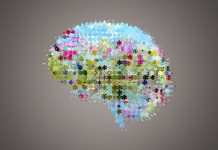Can Artificial Intelligence (AI) change the process of drug development for the pharmaceutical industry?
Trial and error has been the way of drug development for decades however a new study is shedding light on an advanced and innovative route for future drug development
Co-author of the study, Doctor Jianzhu Ma, a specialist and associate professor of artificial intelligence at Peking University, said: “Promising progress has been made in using AI for drug design recently. However, we are still far from certain that these early results could be translated to more effective drugs with a high success rate.”
Published in Health Data Science, a Science Partner Journal, the authors said: “How to harness the value of data is the key to building successful AI for drug development.”
Blending AI models and drug development practices
Throughout their research, the authors pointed out the major limitations of conventional AI-aided drugs development is its linear path.
Without continuous feedback from the downstream experimental results, the preceding step of AI model prediction is only “educated guesses”. Implementing active learning, allows an interactive feedback loop between AI modelling and experimental evolution – increasing its overall outcome.
Behind conventional AI models is what is known as a ‘black box’ – an impenetrable system that cannot be straightforwardly interpreted by humans. However, in using a conventional method of AI, scientists accessibility to the hypotheses and results is greatly shrouded. Therefore, the authors suggested that “the AI model should unveil how it reaches a particular prediction, based on which training molecules”. According to the authors, explainable AI is an active direction in the machine learning community.
“The next decade’s AI-based drug development will feature the tight integration of data and computation, where interpretable AI and experimental biology form an active-learning loop and inform each other with feedback,” Ma said. “It will iteratively improve the workflow and generate interpretable insights that scientists can monitor, analyse, and understand for every stage in drug development.”











